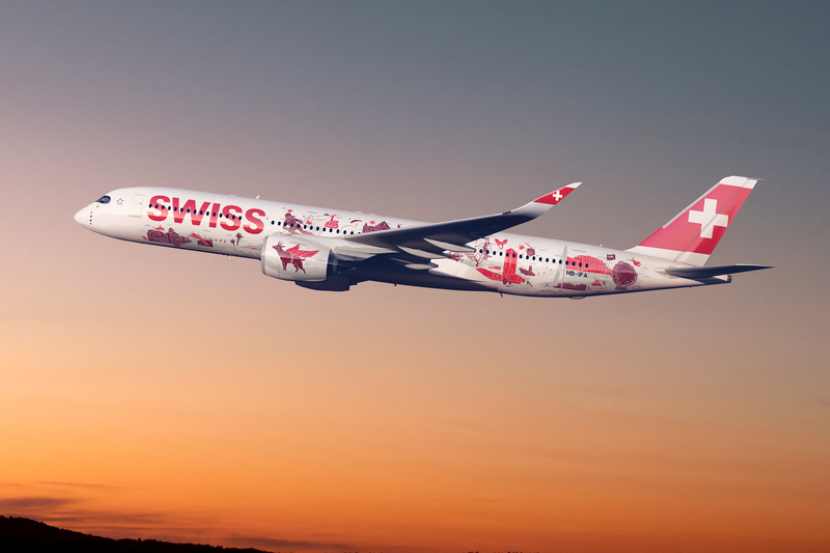Home » AIRLINE NEWS » Germany, Luxembourg, Switzerland, and Serbia Faces Travel Turmoil as Swiss Airlines Cancels 6 Flights, Impacting Passengers Across Munich, Geneva, Zurich, and Other Airports: Latest Update
Published on
September 13, 2025
Germany, Luxembourg, Switzerland, and Serbia are facing a significant travel turmoil as Swiss Airlines cancels 6 flights and delays 63 others. This unexpected setback has left many passengers stranded, particularly across key airports in Munich, Geneva, Zurich, and other major hubs. Travelers who were counting on Swiss Airlines to connect them to their destinations are now dealing with delays and cancellations, leading to frustration and confusion. The impact of these suspensions is widespread, affecting both business and leisure travelers. Swiss Airlines’ decision to cancel these flights comes as a shock to many, with passengers now scrambling to find alternative arrangements. Munich, Geneva, and Zurich airports are witnessing an increase in passenger traffic due to the cancellations. As the airline works to resolve the situation, the travel disruption continues to ripple through these regions, with many still waiting for updates on when flights will resume.
Affected Cities and Airports
The airports and cities affected by Swiss Airlines recent travel disruptions. These include Munich International Airport (MUC / EDDM) in Munich, Germany, and Luxembourg International Airport (LUX / ELLX) in Luxembourg City, Luxembourg. Additionally, Geneva Cointrin International Airport (GVA / LSGG) in Geneva, Switzerland, and Zurich (Kloten) Airport (ZRH / LSZH) in Zurich, Switzerland, are also impacted. Finally, Belgrade Nikola Tesla International Airport (BEG / LYBE) in Belgrade, Serbia, is part of the travel disruption. These airports and cities have been dealing with significant flight cancellations and delays, causing widespread frustration for travelers.
Flight Cancellations
Cancellations and Delays Impact Passengers Across Multiple Airports
Among the 6 cancelled flights, major European airports like Munich International Airport (MUC), Geneva Cointrin International Airport (GVA), and Zurich (Kloten) Airport (ZRH) are among the most impacted. These cities are known for their business connections and are also popular destinations for leisure travelers. However, the cancellation of flights, coupled with delays, has severely affected the flow of passengers in and out of these airports.
Munich, the capital of Bavaria and Germany’s third-largest city, had one of its most important international flights cancelled. SWR1121, which was supposed to depart from Munich International Airport (MUC) to Geneva Cointrin International Airport (GVA), was abruptly suspended, leaving travelers unable to continue with their planned itineraries.
In Zurich, SWR2808, a flight from Zurich (Kloten) Airport to Geneva, was also among those cancelled. Zurich, the largest city in Switzerland, is a key financial and cultural center, with both leisure and business travelers relying on timely flights. The ripple effects from this cancellation were felt by passengers who had tightly scheduled appointments or connections to other international flights.
In Luxembourg, the cancellation of SWR751, a flight from Luxembourg International Airport (LUX) to Zurich, has caused added distress. Luxembourg, a global financial hub, sees a considerable amount of air traffic, particularly for corporate travel. The disruption has impacted key professionals who depend on Swiss Airlines for reliable travel connections.
In addition to the cancellations, 63 flights were delayed. These delays have affected both short and long-haul connections across several European cities, amplifying the disruption to an already frazzled passenger base. For many, the delays are just as frustrating as the cancellations, as passengers were still left unsure about the arrival times of their rescheduled flights.
What to Do if Your Flight Gets Cancelled: A Quick Guide
Flight cancellations can be frustrating, but knowing the right steps to take can help minimize stress. Here’s what you can do if you find yourself in this situation:
Stay Updated
Monitor your email, phone, and the airline’s app for rebooking confirmation or further announcements.
Stay Calm and Check for Updates
As soon as you learn your flight is canceled, stay calm and check for updates. Many airlines will notify you via text, email, or their app. Visit the airline’s website for real-time updates on the situation.
Contact the Airline
Reach out to the airline’s customer service either in person at the airport or over the phone. If you’re at the airport, head to the service desk. If you’re not, try calling or using the airline’s online chat system to avoid waiting in long queues.
Know Your Rights
Familiarize yourself with the airline’s policies regarding cancellations. Many airlines offer rebooking options or compensation, especially if the cancellation is within their control. In the EU, for example, passengers are entitled to compensation under certain conditions.
Consider Alternative Flights
Ask the airline about the next available flight. If you can’t find a suitable option, consider booking a new flight through another airline, or check for other forms of transport like trains or buses.
With 6 cancelled flights and 63 delays, the recent disruptions by Swiss Airlines have left passengers across Germany, Luxembourg, Switzerland, and Serbia frustrated and uncertain. The impact has been widespread, especially in cities like Munich, Geneva, Zurich, and Belgrade, where travel is vital for both business and tourism. While Swiss Airlines is working to resolve the issue, passengers are still feeling the effects of the disruptions, with many left wondering when their travel schedules will return to normal.
As the situation unfolds, passengers are urged to stay in close contact with the airline for updates on their flight status. Meanwhile, Swiss Airlines will need to address the root causes of these disruptions to restore the confidence of their loyal customers. For now, travelers affected by these cancellations and delays will continue to navigate a stressful and uncertain travel experience.
